The first film to encompass the remarkable story of one of the true icons of our time, as she fights to maintain her brand’s integrity, her principles and her legacy.


The first film to encompass the remarkable story of one of the true icons of our time, as she fights to maintain her brand’s integrity, her principles and her legacy.
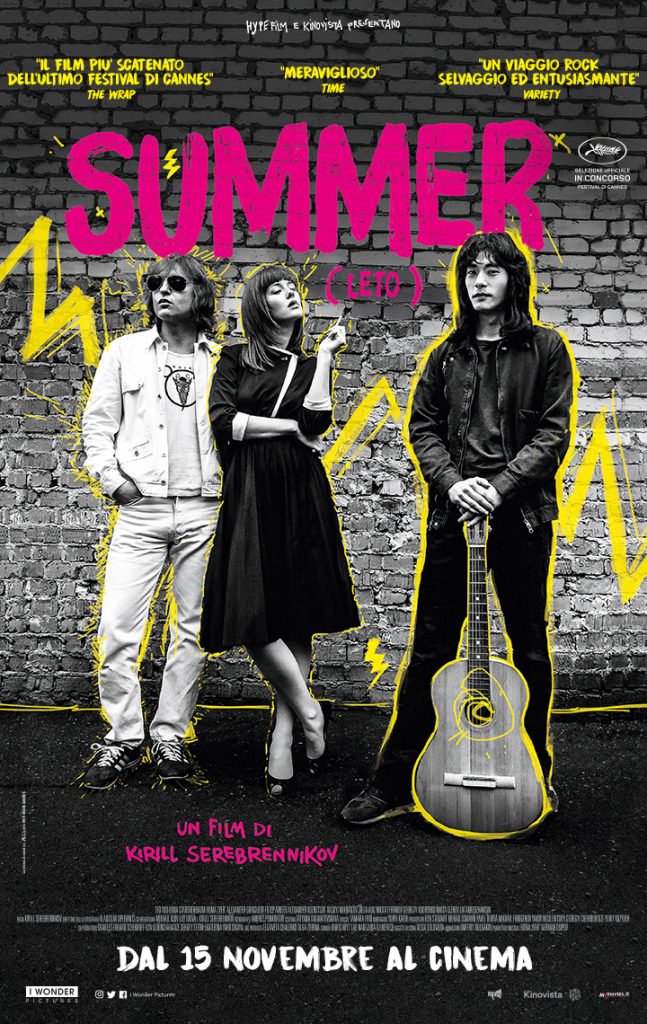
Inspired by the early years of two Russian rock stars from the 1980s, Kirill Serebrennikov’s film pays tribute to the Leningrad underground scene just before the dawn of perestroika. Premiered in competition at the 2018 Cannes Film Festival.

Stazione ferroviaria di Viareggio, 29 giugno 2009, ore 23:48. Un treno carico di GPL deraglia. Il gas fuoriesce, entra nelle abitazioni. Ore 23:50, uno due tre esplosioni. 32 persone muoiono nelle loro case. “Il sole sulla pelle” racconta la storia che non può essere dimenticata di chi è rimasto e lotta per avere giustizia e verità. Un documentario che esplora con la nostra umana curiosità il rapporto che ognuno di noi ha con il dolore, le grandi paure e i grandi sogni. Fino a che punto possiamo capire e condividere il dolore degli altri? Questo dramma ci ha scosso la coscienza e ha distrutto le nostre sicurezze. Poteva accadere ovunque. Poteva accadere a chiunque. Noi siamo figli e siamo padri. Queste storie ci appartengono.
Docufilm tra i finalisti ai Nastri d’Argento 2019. In sala saranno presenti il regista Massimo Bondielli e l’autore/produttore Gino Martella, insieme a i familiari dell’Associazione Il Mondo Che Vorrei Onlus Viareggio.
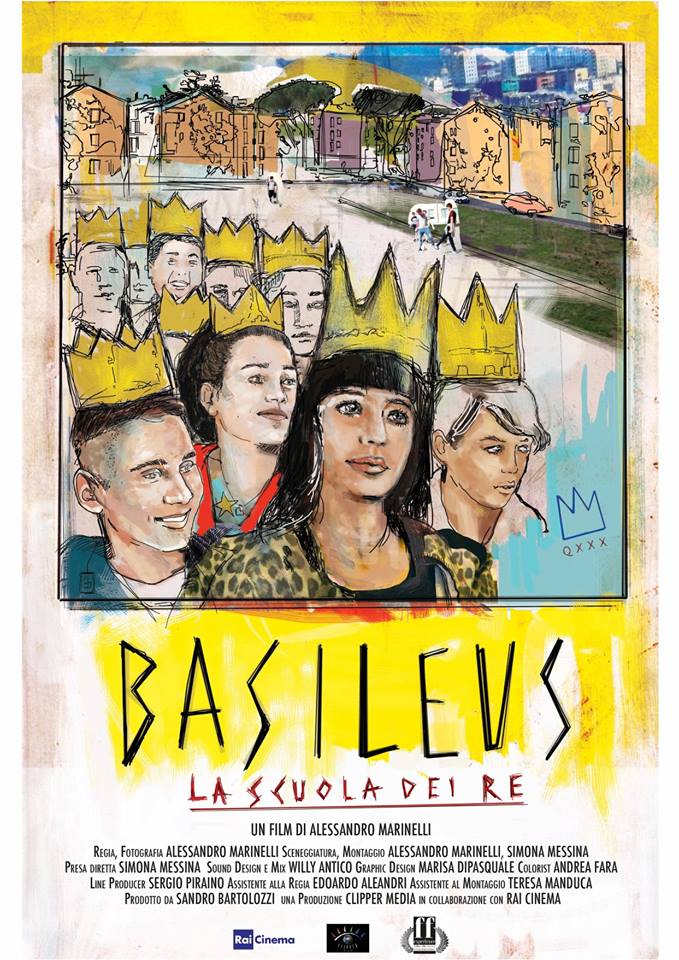
The documentary, set in the Federico Fellini media school in the San Basilio district in Rome, tells about the training courses for a group of teenagers and what it means to be teachers in uncommon contexts such as those in the suburban schools. A journey into class life through choral voices and faces that show us an incredibly dense world to discover, exuding the vitality of teenagers, hopes, dreams, but also burdened with difficulties, fears and uncertainty towards the future.In this microcosm, the strong and peculiar relation between teachers and pupils emerges, all different in their identities and personalities: the first engaged in educating, inventing methods, tools, actions, within a didactic scheme based not only on formal models of teaching but, above all, deeply intertwined with neighborhood life situations and real and individual experiences experienced by students; the latter inclined to represent themselves in a scene that is not fiction but a mosaic of fragments of raw reality, true life, rebellion, resistance, expressed with the language of the word and body, often instinctive and grammatically incorrect but always incredibly vital.

“We need other kinds of stories,” Donna Haraway implores as she faces the camera. “Storying otherwise,” in Haraway’s expression, is an apt characterization of the work of this paradigm-shifting thinker, whose contributions to feminist studies of science and technology resist and even rebel against hegemonic ways of thinking and living. But what form should such stories take? What might they sound or feel like? To watch Fabrizio Terranova’s Donna Haraway: Story Telling for Earthly Survival (2016) is to know that the filmmaker took Haraway’s imperative to heart. Both subtle and explicit filmic techniques mimic, comment on, and evoke the rhythms that sustain Haraway as a thinker, a storyteller, and a human being. In experimenting with different kinds of storytelling—bending the genre of documentary by fusing the intimate everyday with the playfully surreal—Terranova brings one of the most evocative social theorists to life and demonstrates the supple, transformative nature of storytelling itself.
(From “The Society for Cultural Anthropology” SCA web site) .”Donna Haraway is brilliant, passionate, original and a leading intellectual force of our times. This portrait offers an intimate glimpse into the style and imagination of this charismatic thinker.”. Anna Tsing.
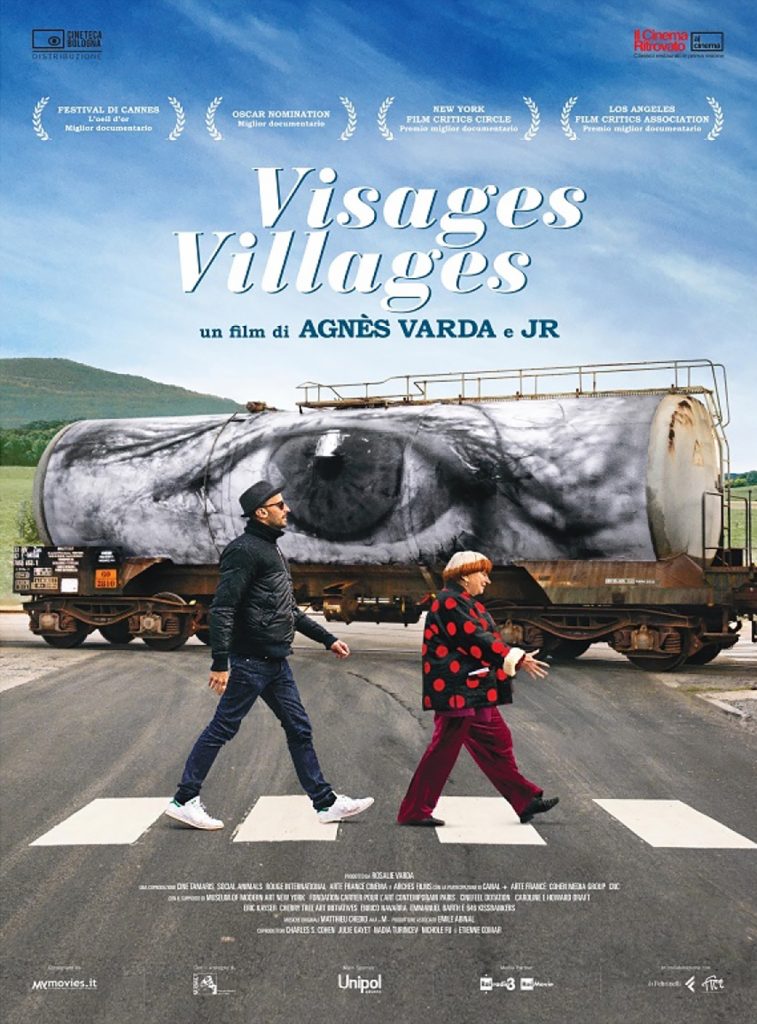
Agnès Varda goes on the road with street artist JR to create remarkable, moving portraits of the people they meet. Here’s a wonderful warmth and playful indirectness to this essay/road movie in the classic nouvelle vague spirit, conjuring a semi-accidental narrative in the midst of what is ostensibly a documentary. It is a collaboration between the 90-year-old director Agnès Varda and a 35-year-old French street artist who styles himself simply JR and always wears a hat and dark glasses, indoors and out – an opaque mannerism, almost a disguise, which Varda compares to her old comrade Jean-Luc Godard, and which irritates her a little bit.
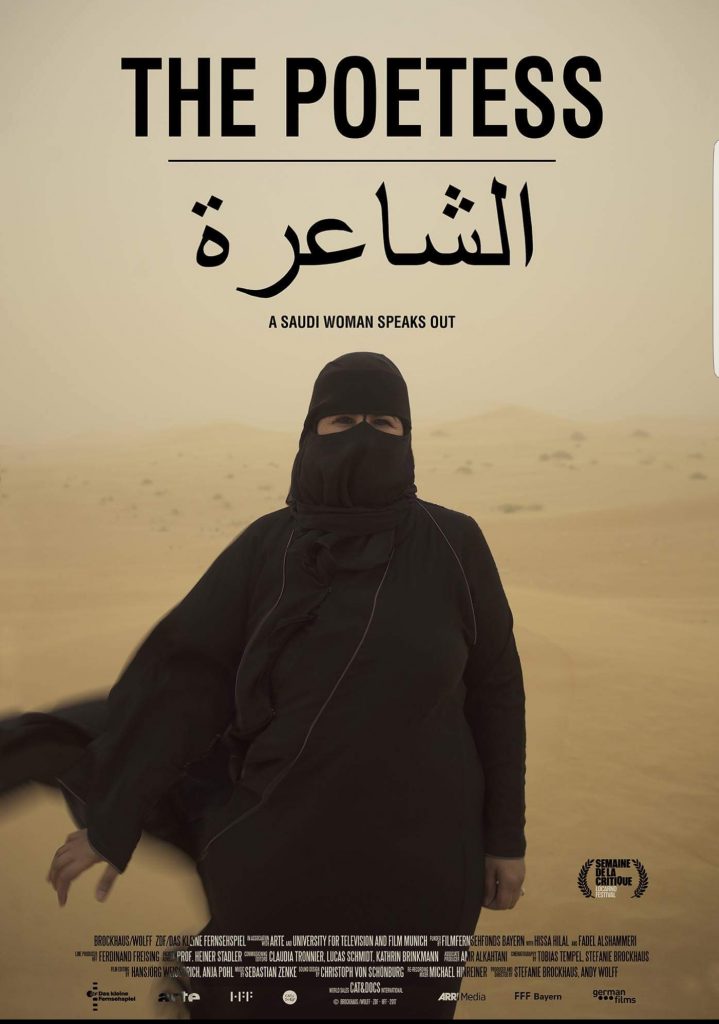
In 2010, Saudi Arabian writer and activist Hissa Hilal did something unimaginable she starred in the Arab World’s biggest televised live poetry competition. In a society where the art of poetry is alive and well, ‘Million’s Poet’ is a hugely popular X-Factor style talent show. Storming through the rounds, and becoming progressively more political in her critique of religious extremism and her patriarchal society, Hilal became the first woman to reach the show’s final speaking with wit and lyricism on live tv to an audience of 70 million (Rotten tomatoes).
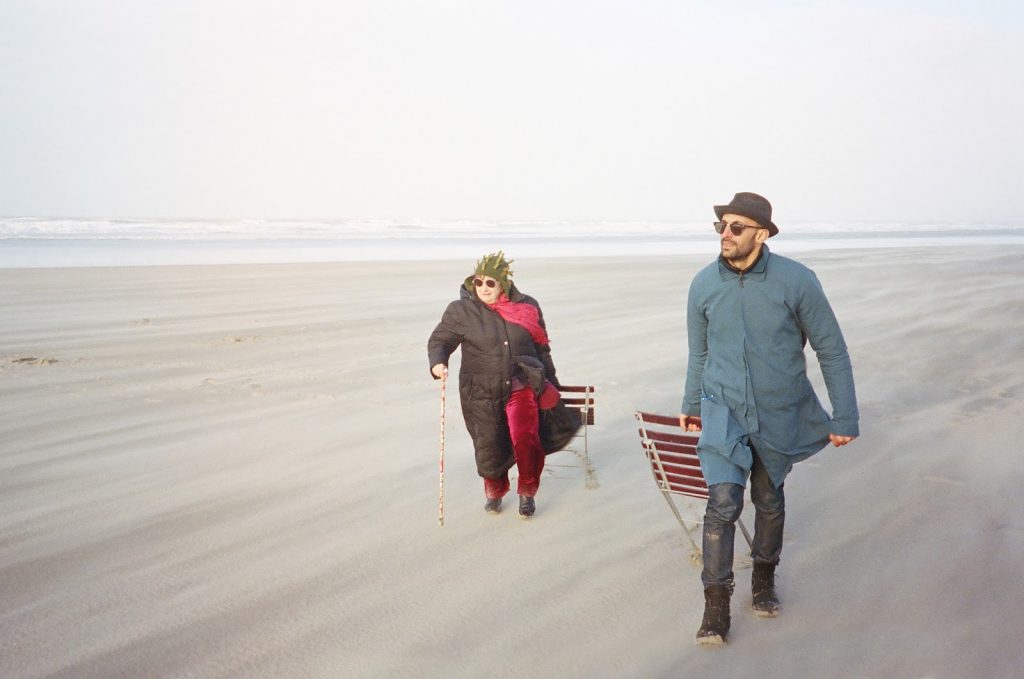
Agnès Varda goes on the road with street artist JR to create remarkable, moving portraits of the people they meet. Here’s a wonderful warmth and playful indirectness to this essay/road movie in the classic nouvelle vague spirit, conjuring a semi-accidental narrative in the midst of what is ostensibly a documentary. It is a collaboration between the 90-year-old director Agnès Varda and a 35-year-old French street artist who styles himself simply JR and always wears a hat and dark glasses, indoors and out – an opaque mannerism, almost a disguise, which Varda compares to her old comrade Jean-Luc Godard, and which irritates her a little bit.
A look at the economic paradox of technological unemployment, wherein modern society focuses on creating jobs, but technology offers people the unique opportunity to work less and less. In The Same Boat is an artistic and sophisticated analysis of the effects of globalisation on the world, which presents an optimistic argument for the future of the planet. Guided by some of the world’s leading radical figures, from Zygmunt Bauman to Serge Latouche, In The Same Boat travels the world discovering the views of its people on work, happiness, the environment, and the economy. Supported by Rudy Gnutti ‘s stunning cinematography and compositions, this film will transform your understanding of the modern world.
A look at the economic paradox of technological unemployment, wherein modern society focuses on creating jobs, but technology offers people the unique opportunity to work less and less. In The Same Boat is an artistic and sophisticated analysis of the effects of globalisation on the world, which presents an optimistic argument for the future of the planet. Guided by some of the world’s leading radical figures, from Zygmunt Bauman to Serge Latouche, In The Same Boat travels the world discovering the views of its people on work, happiness, the environment, and the economy. Supported by Rudy Gnutti ‘s stunning cinematography and compositions, this film will transform your understanding of the modern world.